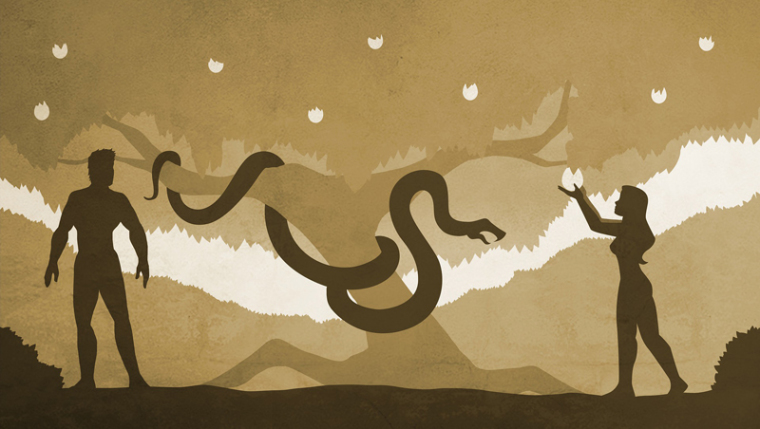
The first page of Genesis has been the source of much heated debate over the recent decades. The two camps being the young earth creationism and evolutionary theory. The two schools of thought are said to be totally opposed to each other. Which puts a Christian in a tough position. A faithful Christian would not want to deny the authority of the Bible, nor read evolution into the Bible. But on the other hand, how reasonable is it to disagree with the consensus of the scientific community? The two camps supposedly cannot co-exist.
The traditional young earth creationism view says the earth was created in six days. The earth is six to ten thousand years old. That everybody comes from Adam and Eve. This view uses a literal reading of Genesis.
Whereas findings from genetic science tell us that a) we arise genetically from a population and our ancestors never dip down to a single couple within the last five hundred thousand years b) we share ancestors in common with the great apes: chimpanzees, gorillas, bonobos, orangutans.
So, we stand at a crossroads.
However, there are people that believe that the two worldviews can be reconciled. Joshua Swamidass, scientist, and professor of biology, chemistry and medicine has written a very thought-provoking book called “The Genealogical Adam and Eve: The Surprising Science of Universal Ancestry". The hypothesis he puts forward, is quite radical, but could in fact be regarded as ground-breaking. It very well could lend clarity in a confusing debate that has been raging on for decades.
His hypothesis is as follows:
"Entirely consistent with genetic and archaeological evidence, it is possible that Adam was created out of dust, and eve out his rib, less than ten thousand years ago. Leaving the garden, their offspring would have blended with those outside it, biologically identical neighbours from the surrounding area. In a few thousand years, they would become genealogical ancestors of everyone.” (The Genealogical Adam and Eve, Joshua Swamidass, p10)
Wider Population
Science tells us that as a species we arose as a population not a couple. But how can that be if the Bible says we all come from Adam and Eve?
Swamidass’ hypothesis points to a wider population outside of the garden. The wider population share common descent with primates. Eventually, Adam and Eve’s offspring interbred with them.
If you have read the early chapters of Genesis carefully, the question of a wider population may have come up for you. Why is Cain scared when he is exiled? Where did the Nephilim come from? Why does Genesis 2 spend so much time marking out the boundaries of the garden? All these things suggest that there is a population outside the garden.
Science also supports the idea of interbreeding between modern humans and archaic humans. Since 2010, studies (1) (2) (3) have been revealing the surprising fact that there was interbreeding between humans and other hominids. Neanderthals are not the brutes that they are often depicted as. They had cognitive capacities akin to homo sapiens.
Ancestry
How then is it still true we come from Adam and Eve?
What we share with Adam and Eve is genealogical ancestry. Not to be confused with a genetic ancestry. You get half your DNA from each parent. As you go back in the generations, the genetic connection gets halved. After you go back several generations, your genetic connection may be obsolete. But you are still connected in genealogy. They are still part of your family tree.
Openness
Swamidass is a well credentialed scientist, and his work has been workshopped by a team of scholars.
Nevertheless, his work may be very difficult to stomach. The topic is controversial. The findings are challenging a traditional reading of early Genesis. We even have to consider the existence of other hominids. Furthermore, in some people’s minds evolution is from the devil. And any hypothesis that grants evolution as accurate is heretical.
There may be some resistance to accept these ideas, but we should at least consider them if we are truly seeking truth. Personally, after reading his book, after considering it deeply, I still find an unsettled feeling inside myself. But if this theory takes us closer to the truth, than it should be accepted, no matter what tradition says.
The challenge of evolution to the interpretation of Genesis should not be swept under the rug. We should have a stance to stand on that is accurate in hermeneutics and takes in the consensus of the scientific community. Swamidass offers us just that.

Roden Meares enjoys playing basketball, reading comics and going to the gym. He has a passion for evangelising and helping others in their faith through writing.
Roden’s previous articles can be viewed at https://www.pressserviceinternational.org/roden-meares.html